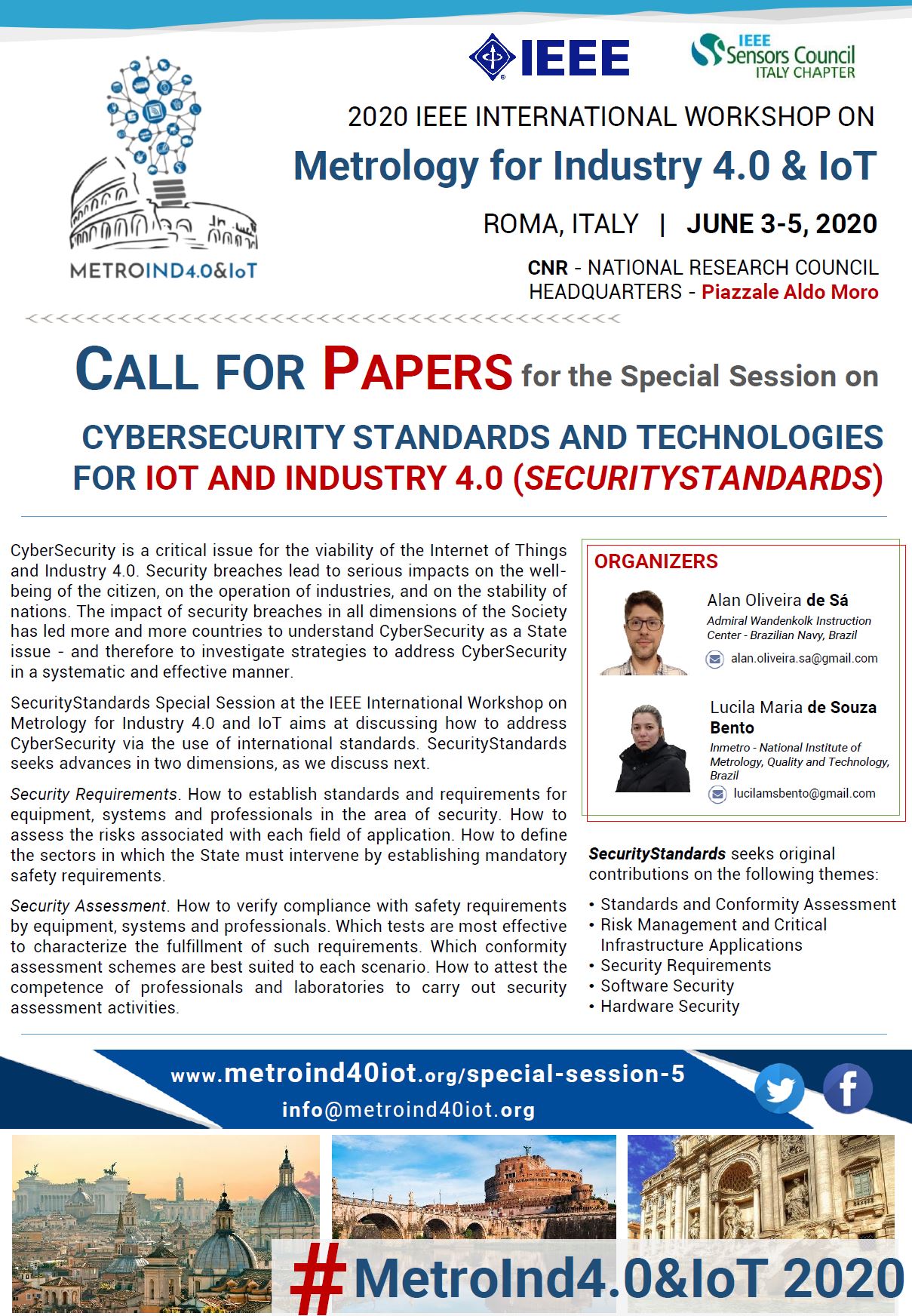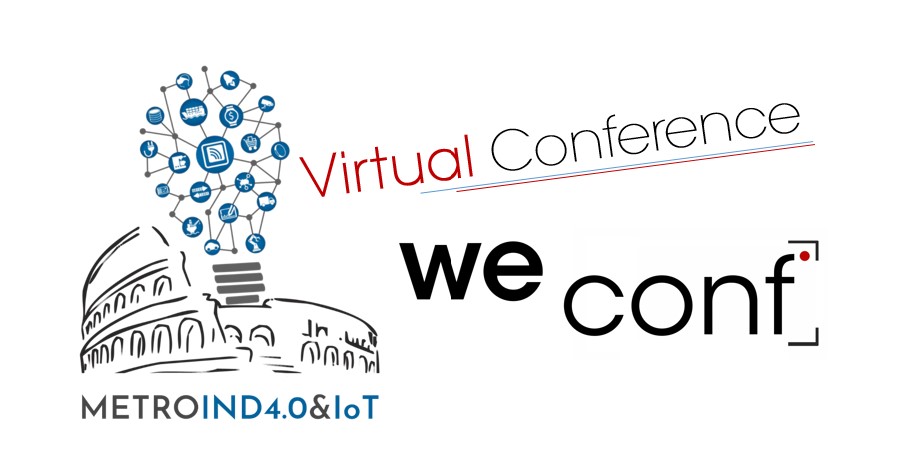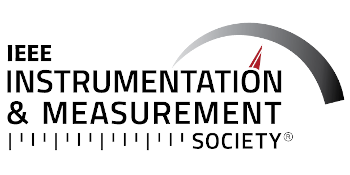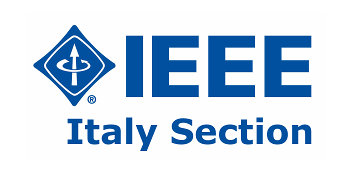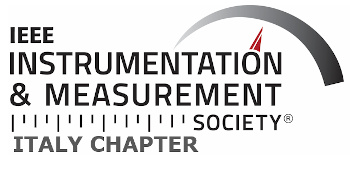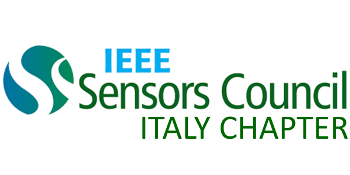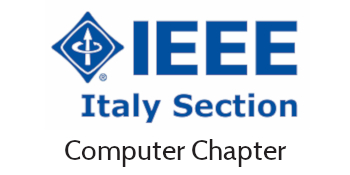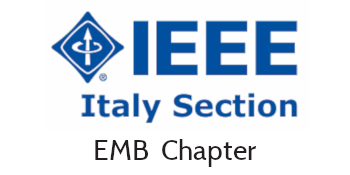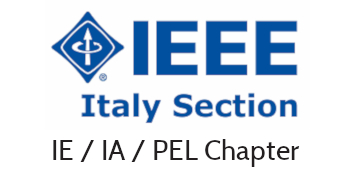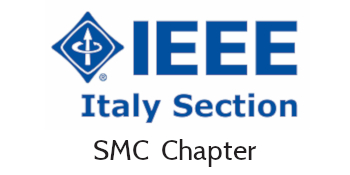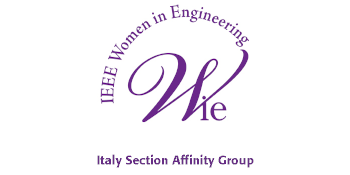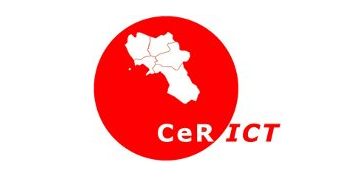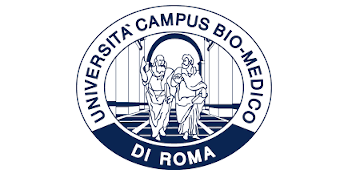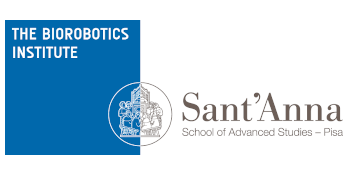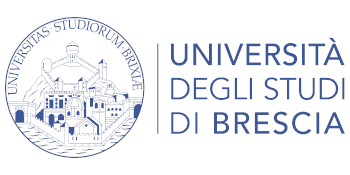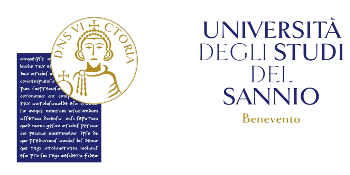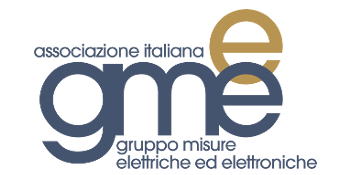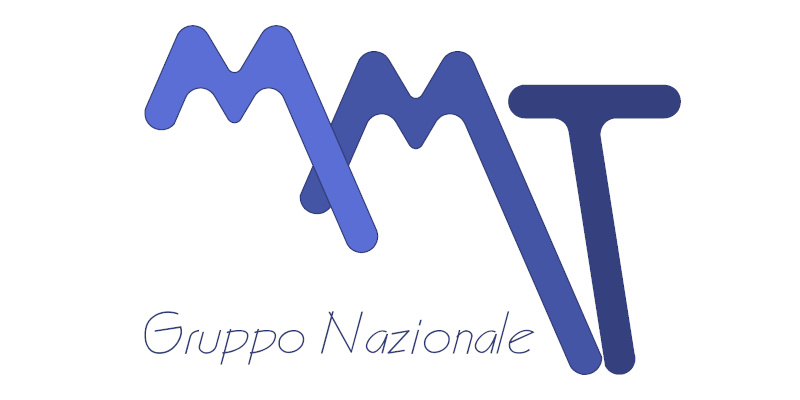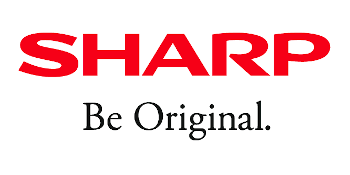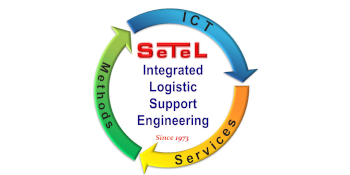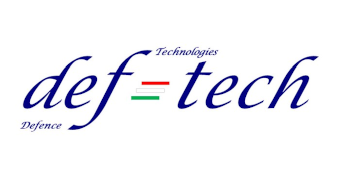CYBERSECURITY STANDARDS AND TECHNOLOGIES FOR IOT AND INDUSTRY 4.0 (SecurityStandards)
ORGANIZED BY

Alan Oliveira de Sá
Admiral Wandenkolk Instruction Center - Brazilian Navy, Brazil

Lucila Maria de Souza Bento
Inmetro - National Institute of Metrology, Quality and Technology, Brazil
ABSTRACT
CyberSecurity is a critical issue for the viability of the Internet of Things and Industry 4.0. Security breaches lead to serious impacts on the well-being of the citizen, on the operation of industries, and on the stability of nations. The impact of security breaches in all dimensions of the Society has led more and more countries to understand CyberSecurity as a State issue - and therefore to investigate strategies to address CyberSecurity in a systematic and effective manner.
SecurityStandards Special Session at the IEEE International Workshop on Metrology for Industry 4.0 and IoT aims at discussing how to address CyberSecurity via the use of international standards. SecurityStandards seeks advances in two dimensions, as we discuss next.
Security Requirements. How to establish standards and requirements for equipment, systems and professionals in the area of security. How to assess the risks associated with each field of application. How to define the sectors in which the State must intervene by establishing mandatory safety requirements.
Security Assessment. How to verify compliance with safety requirements by equipment, systems and professionals. Which tests are most effective to characterize the fulfillment of such requirements. Which conformity assessment schemes are best suited to each scenario. How to attest the competence of professionals and laboratories to carry out security assessment activities.
TOPICS
In this sense, SecurityStandards seeks original contributions on the following themes:
- Standards and Conformity Assessment
- Security standards for software and smart devices
- Conformity assessment methods for cybersecurity
- Information security management systems standards
- Risk assessment standards
- Accreditation of security assessment laboratories
- Risk Management and Critical Infrastructure Applications
- Energy
- Water and Sewage
- Transportation
- Communication
- Financial System
- Public Security and Civil Defense
- Security Requirements
- Cryptography Standards
- Software Applications
- Smart Devices
- Management Systems
- Professional Competence
- Privacy and Confidentiality Requirements
- Software Security
- Static code analysis
- Dynamic software analysis
- Software Testing
- Code obfuscation
- Software incorruptibility
- Software watermarks
- Software validation
- Reference datasets
- Hardware Security
- Side-channel attacks and countermeasures
- Fault attacks and countermeasures
- Hardware tampering and tamper-resistance
- Hardware and software reverse engineering
- Trusted computing platforms
- Secure storage devices
- Cryptographic processors and co-processors
- True and pseudorandom number generators
- Physical unclonable functions
ABOUT THE ORGANIZERS
Alan Oliveira de Sá holds a PhD in Informatics at the Federal University of Rio de Janeiro (2019), received the MSc degree in electronic engineering at the State University of Rio de Janeiro (2015) and graduated in electronic engineering at the Rio de Janeiro Federal Center for Technological Education (2006). He is currently Professor on cyberwarfare and electronic warfare fields at the Admiral Wandenkolk Instruction Center, Brazilian Navy. His research interests include cybersecurity, defense systems, control systems, and intelligent systems.
Lucila Maria de Souza Bento holds a PhD in Informatics at the Federal University of Rio de Janeiro (2015), a Master's degree in Informatics also from the Federal University of Rio de Janeiro (2012) and is a Technologist in Computer Systems at the Fluminense Federal University (2010). Lucila is a researcher at Inmetro, the Brazilian National Institute of Metrology, Quality and Technology, Lucila was a Postdoc at COPPE - UFRJ. She was a Visiting Professor of the Postgraduate Program in Informatics at the Mathematics Institute at the Federal University of Rio de Janeiro, on the Artificial Intelligence field, and Academic Director of the Clavis Information Security Group (Grupo Clavis Segurança da Informação). Lucila works with security analysis of embedded devices related to Conformity Assessment. Her research interests includes algorithms, data structures, graph theory, artificial intelligence, and information security.



